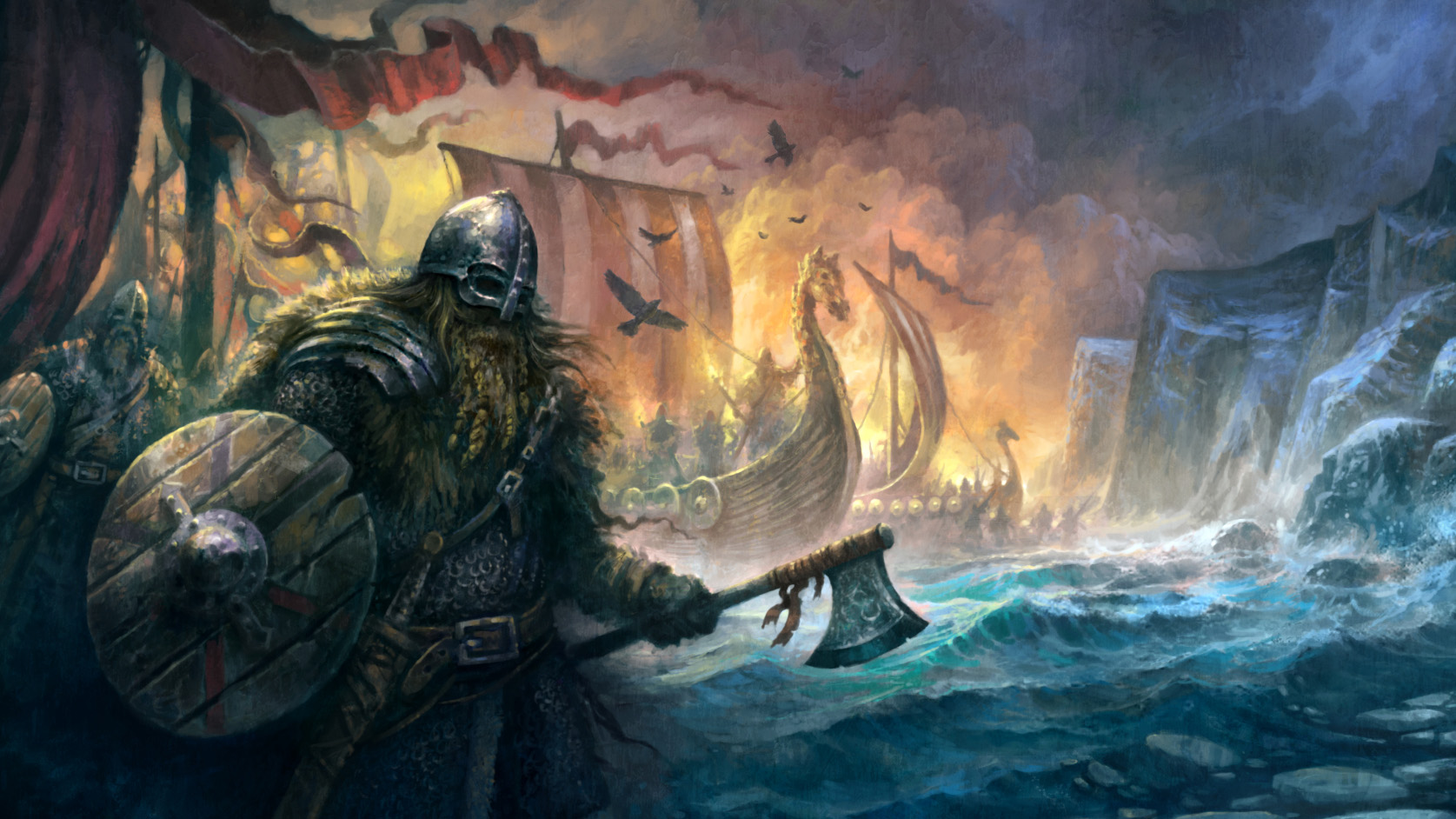
PC games are full of arcane artifacts spurring on ancient civilizations, Nazis riding dinosaurs, and Ghandi nuking the entire planet. Historical accuracy isn’t always a priority, and even the ones that try to get it right have to take some liberties with the facts modern scholarship hands down to us to be, you know, a fun game. But there is a definite divide between games that offer a mere nod to history (or use some vague, pop culture-informed stereotype of it as a jumping-off point) and those that actually put in enough research time to get at least some of the important facts straight.
It’s hard to measure a variable like “historicity” when it comes to games—and yes, that is a real word. Games that put history first tend to wind up overly complicated rather than fun, so I've highlighted genuinely great PC games that go out of their way to include some historical accuracy. In particular, I chose games that accurately and ably depict a facet of history that is often misrepresented or ignored in other, ostensibly historical games.
In chronological order based on their setting, here are the most historical PC games.
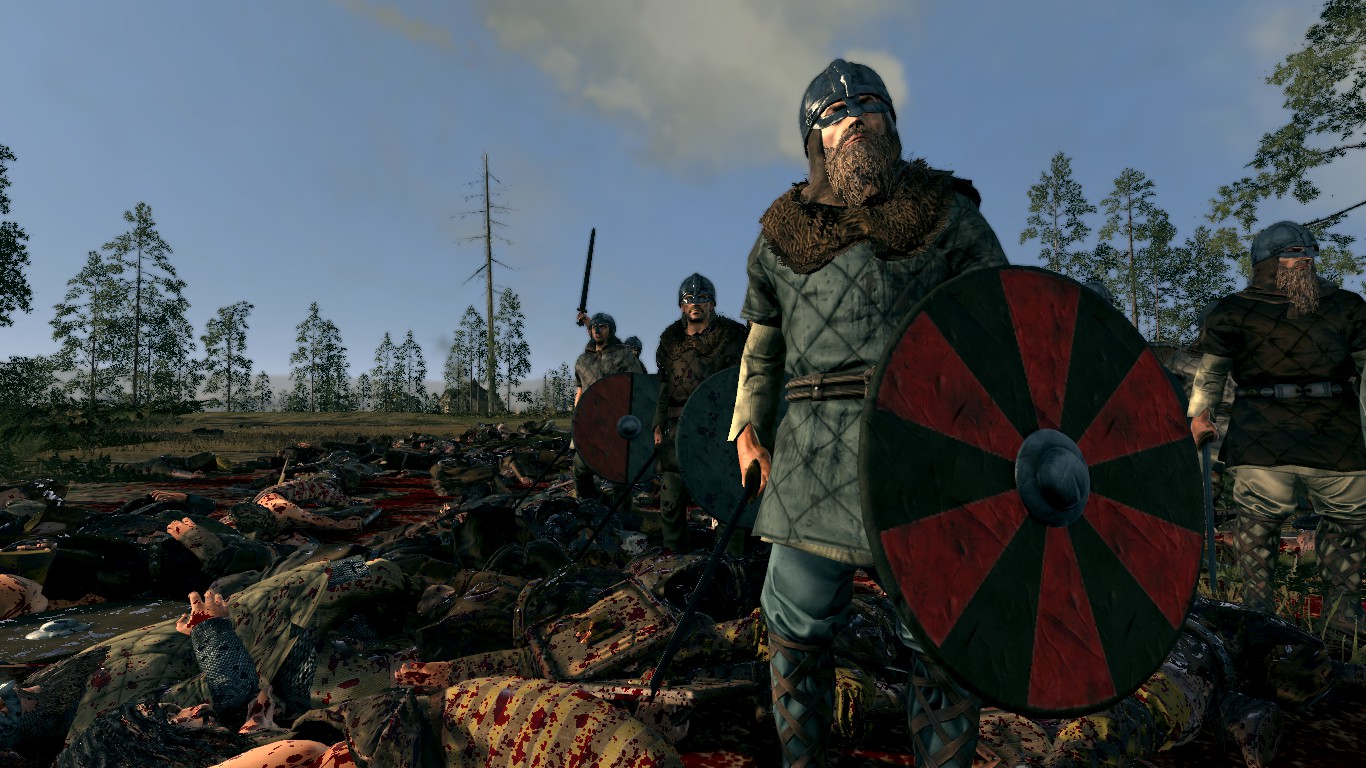
Total War: Attila - Most historical game about the collapse of the Western Roman Empire
Attila pulled Total War’s tired campaign formula out of its slump and gave us a living map that portrayed the cultural, political, and environmental challenges facing Rome in her twilight years. Rather than playing into the stereotype of angry, marauding barbarians showing up out of nowhere to sew chaos, the map really put you in the middle of why these invasions were happening—the oncoming of climate change making northern regions progressively less supportive of large populations, and the migration of the Huns into Eastern Europe.
It was also the first Total War game to model the fact that not all societies have permanent cities, and how tributary relationships could form between cultures as a pressure valve against open war.
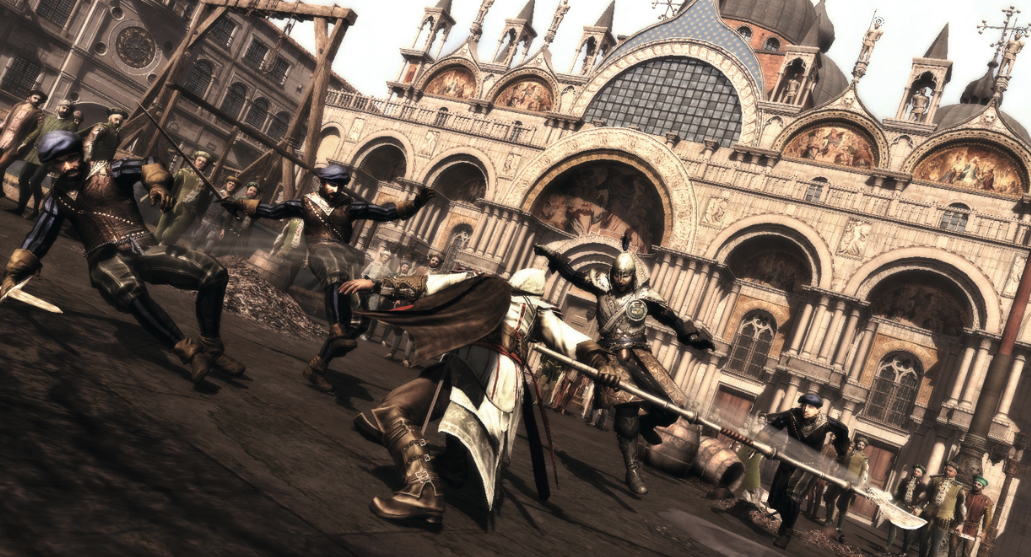
Assassin’s Creed series - Most historical depiction of ancient cities
There is very little about the plot of any Assassin’s Creed game that could be regarded as staunchly historical (though we do get some cool nods here and there—the Siege of Masyaf in AC1 is a thing that really happened). However, they’ve gone to great lengths to depict, in full scale, what it would be like to walk the streets of Renaissance Florence or medieval Jerusalem. From the crowds, to the architecture, to the small details, there is a lot of history to experience just by wandering the environments. My personal favorite is Revelations’ post-Ottoman-conquest Constantinople, perhaps one of the most interesting cities in world history snapshotted at one of its most interesting ages.
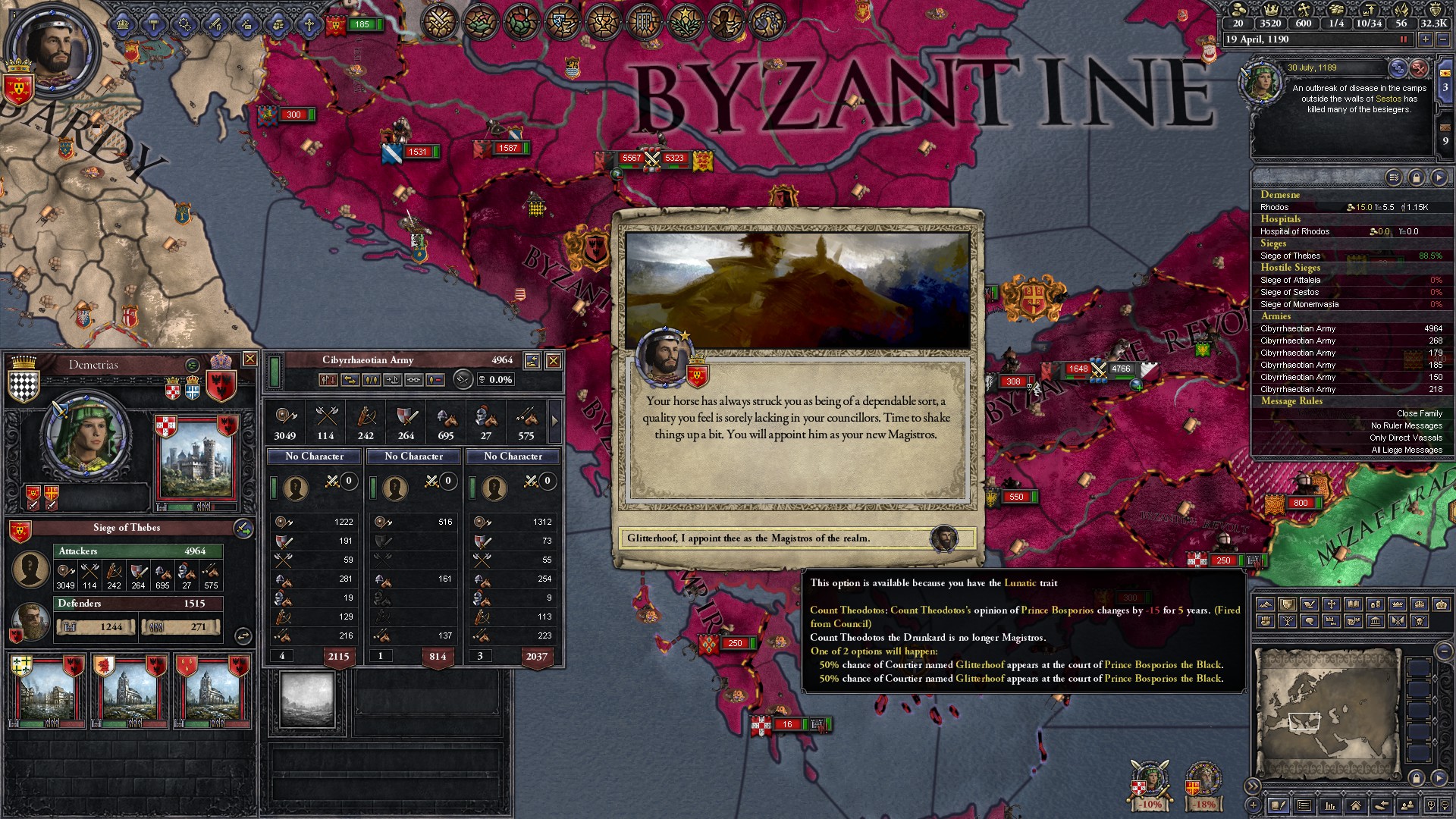
Crusader Kings 2 - Most historical modeling of medieval Western European politics
With expansions highlighting Satanic cults and fanciful, “What if?” Aztec invasions, there is plenty of ahistorical nonsense kicking around CK2 these days. But at its core is a system that does an excellent job of modeling how politics worked in Western Europe from about 1000 to 1400 AD. We take for granted the concept of a nation state in our modern world, but if you lived in Auvergne, France in 1150, you were probably loyal to a person, not a flag or a constitution. All of CK2’s titles have holders, and it is they who interact and play the grand game against one another.
Keep up to date with the most important stories and the best deals, as picked by the PC Gamer team.
A strong realm can crumble under a weak king just as a poor realm can rise to glory under a great king. And while the hierarchical depiction of feudalism it presents is highly disputed in modern scholarship, excellent expansions like Conclave have added more weight to the lateral bonds that many historians argue were the greater driving force among the nobility of the age.
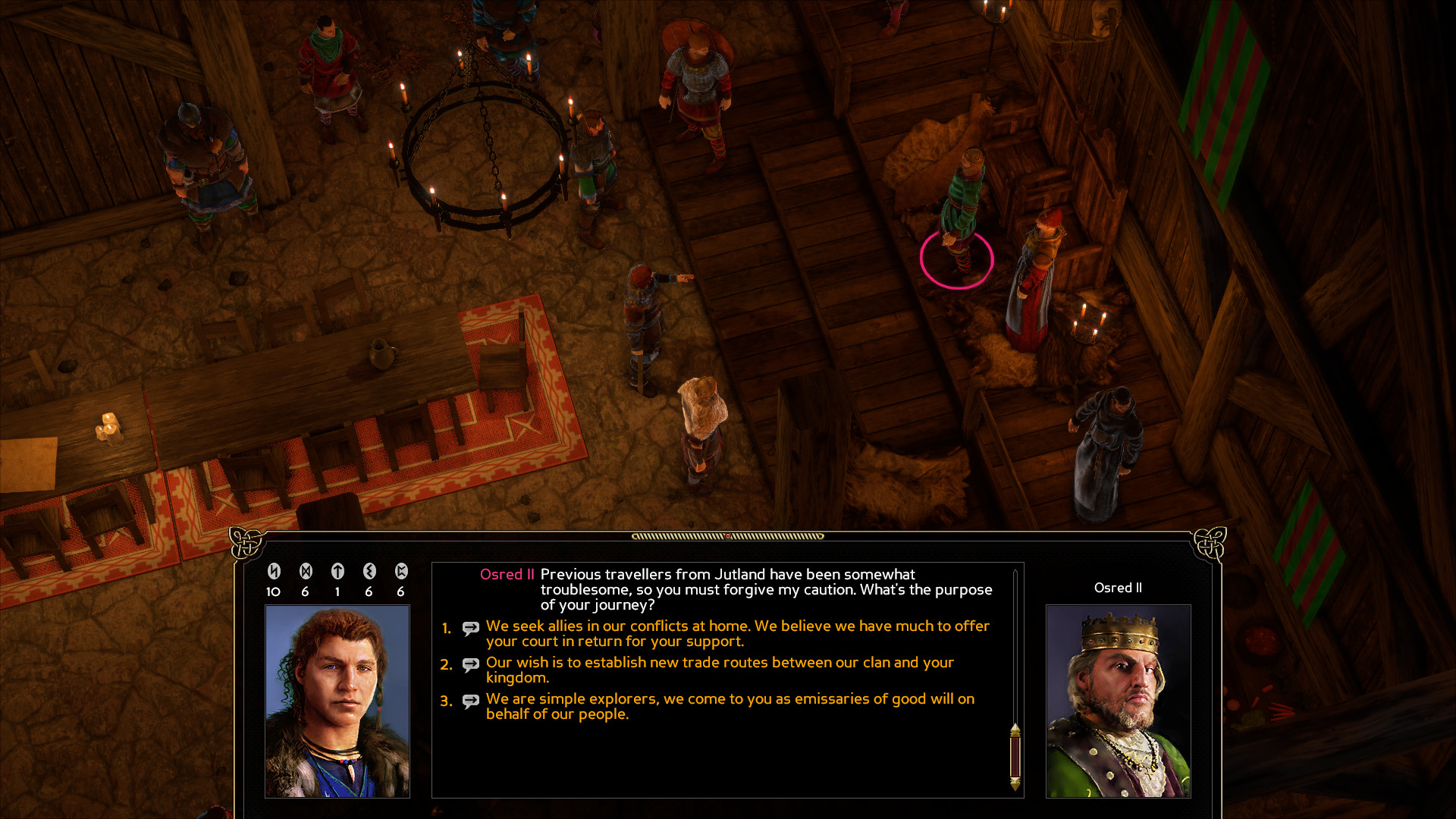
Expeditions: Viking - Most historical Viking game
I was impressed immediately by how apparent it was that the designers of Expeditions: Viking put stereotypes out of their mind and hit the books. As my primary historical interest area, I have a high standard for games about the Viking Age, and this one really has you doing a lot of the things a viking ruler would have actually found him or herself doing.
There are kinship-based blood feuds to manage. There is the emphasis on the necessity of presenting yourself as both a strong and a just ruler, not taking for granted that people will follow you based on your name. It even models the effects those notorious raids had on Scandinavia—bringing back captives and wealth that would help build infrastructure and birth three of the most influential kingdoms in European history.
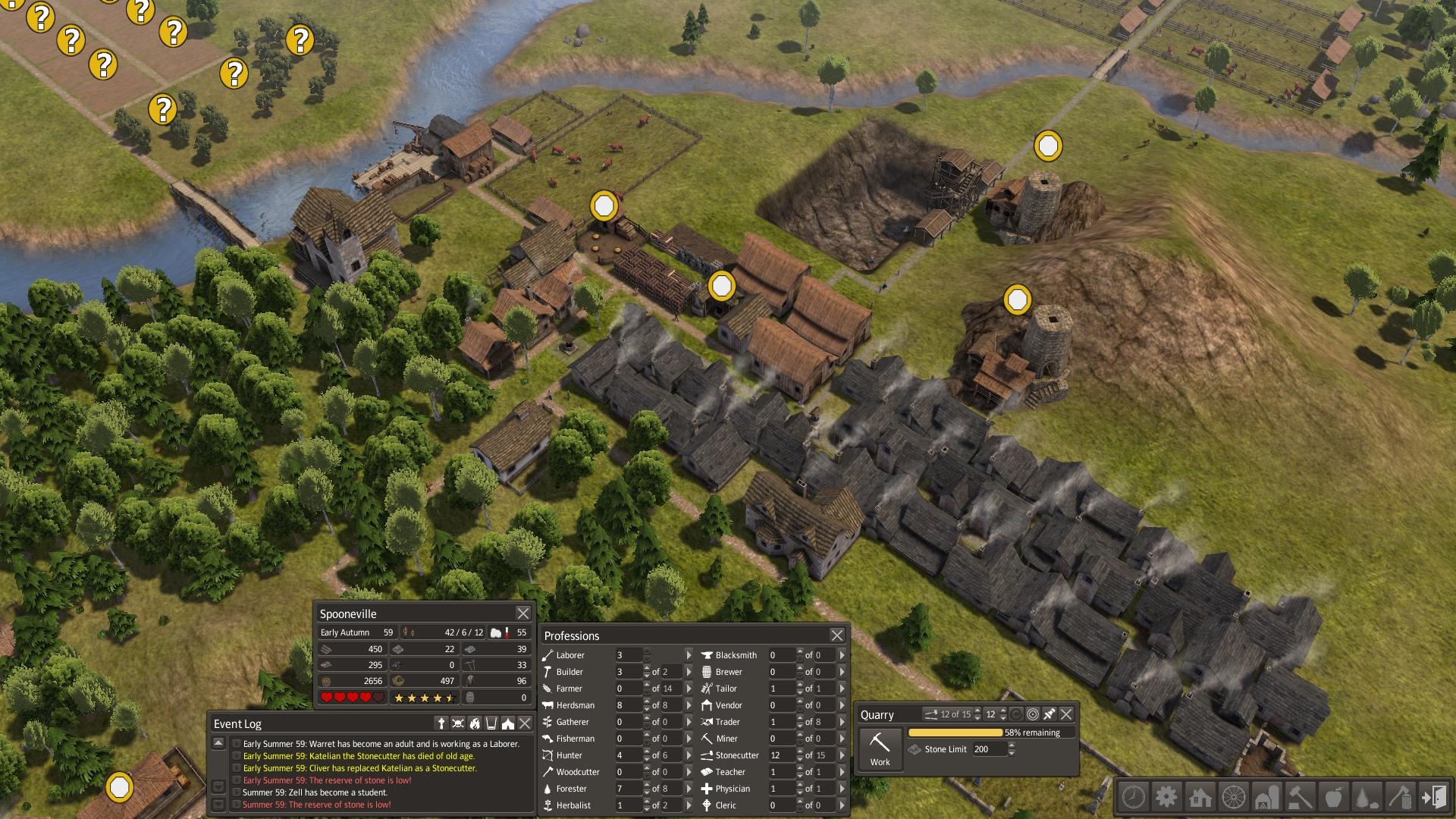
Banished - Most historical game about frontier settlement
Banished is a fairly simple game. I might even argue that it’s too simple, but the mechanics it chooses to focus on are very much the sorts of things that say, an English settler in the 17th Century Virginia Colony would have been concerned with. Keeping your people warm, fed, and healthy are your main goals. You have to use the resources in your environment and trade with distant lands to provide for a growing population. A harsh winter or a disease outbreak can be utterly disastrous and end your whole settlement—as they often did for early European settlements in the New World.
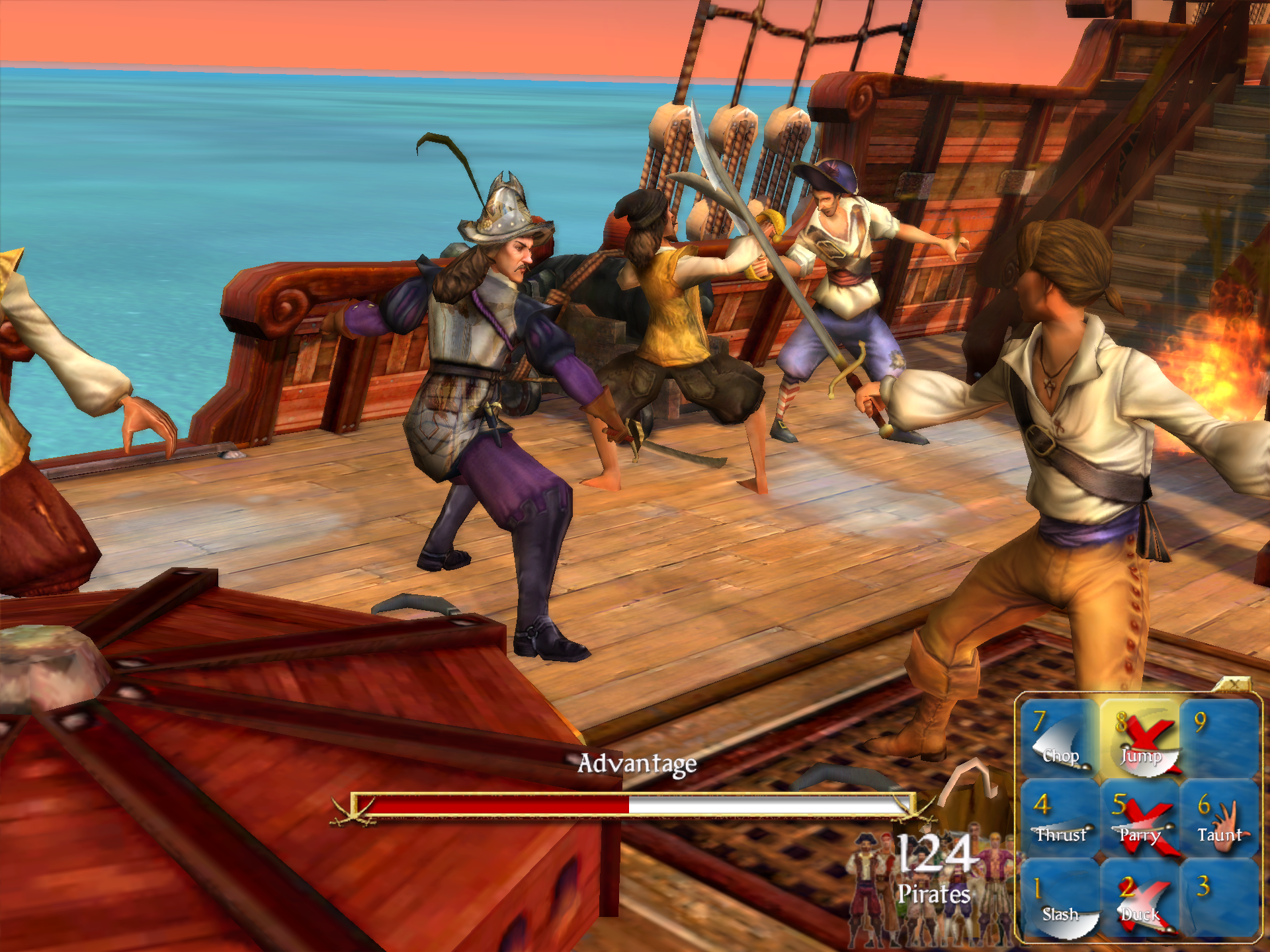
Sid Meier’s Pirates! - Most historical pirate game
While Pirates! does allow itself to indulge in some buccaneer stereotypes, it also models a lot of the genuine realities a privateer captain during the Golden Age of Piracy would have to be concerned with. A crew is a ragtag collection of malcontents picked up from all across the Caribbean who will only stay with you as long as they feel like there’s a monetary reward in it. The political interplay between the Spanish, English, French, and Dutch is an ongoing conundrum, and you’ll usually be working for at least one of them. And of course, its modeling of naval combat with wind direction, hull size, decks, guns, and even shot type really gives you a glimpse of all the skills necessary to be a naval officer in that era.
![Screenshot via Steam user [HWK] Turenne ®™](https://cdn.mos.cms.futurecdn.net/E67yvTagNn5QDqWhy5KtPV.jpg)
Victoria 2 - Most historical game about the Industrial Revolution
Vicky 2 is probably the most intimidating and inaccessible game on this list, but it deserves its spot for hanging its top hat on aspects of history that often get ignored. The level of literacy among your population matters. More literate societies will become more productive… but they also gain Consciousness, which can lead them towards social movements like communism and demanding an end to slavery, universal suffrage, and labor rights. You know, pesky commoner stuff. It also models industrialization, war profiteering, and the advantages and disadvantages of free markets versus command economies. If you have the patience to learn it, it's well worth the investment.
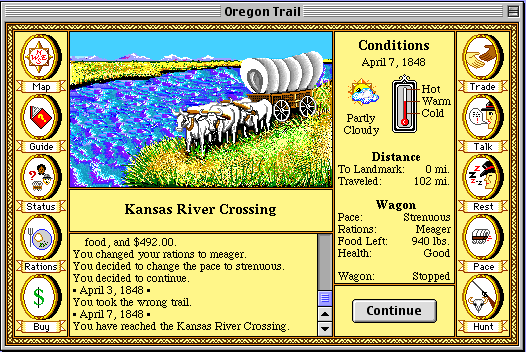
The Oregon Trail - Most historical game about the Oregon Trail
An oldie but a goodie. The various iterations of The Oregon Trail that have been released since 1971's HP 2100 version (how’s that for some history!) have all been lauded for their educational value. And with good reason. If a modern person tries to imagine the struggles faced by an American pioneer making the journey from Independence to the Willamette Valley in the mid-1800s, they probably wouldn’t give much thought to how many spare wagon tongues you’d need to bring. But that was the reality, and The Oregon Trail put us in the middle of it. It probably also made us a little more afraid of dysentery than we have cause to be in an era of modern medicine and sanitation, but no game is perfect.
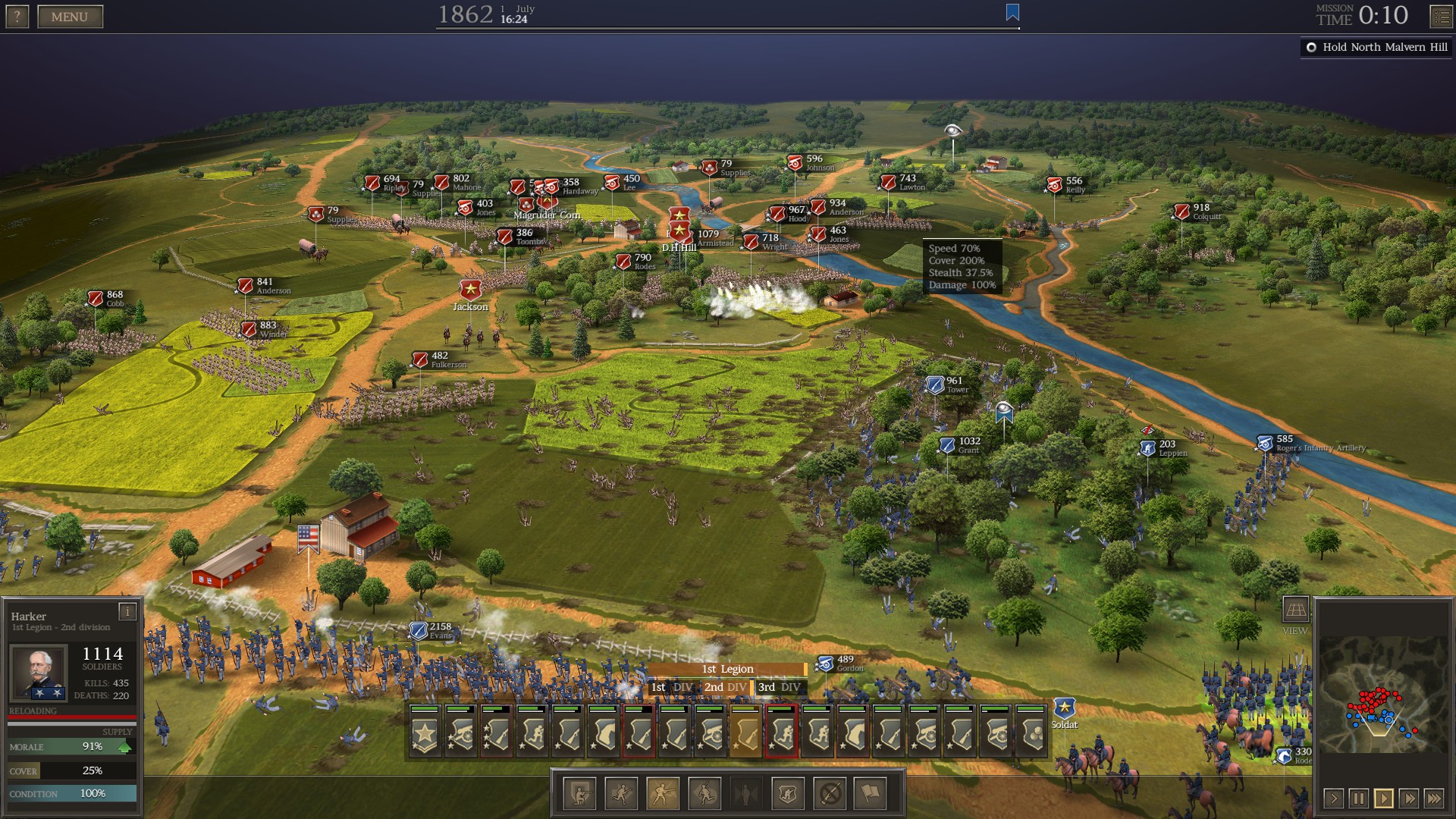
Ultimate General: Civil War - Most historical game about the Civil War
I know I’ll take my share of hard tac for failing to call out some hex-based, in-depth wargame that features the weight and height of every soldier who fought at Gettysburg compiled from census records, but Ultimate General is the perfect midpoint between attention to historical detail, accessibility, and fun. Its combat engine realistically models terrain, movement, casualties, and morale in real time. The recently released campaign mode even gets into how generals in this era had to prove themselves to the political leadership if they wanted to be well-supplied and have weight given to their strategic advice.
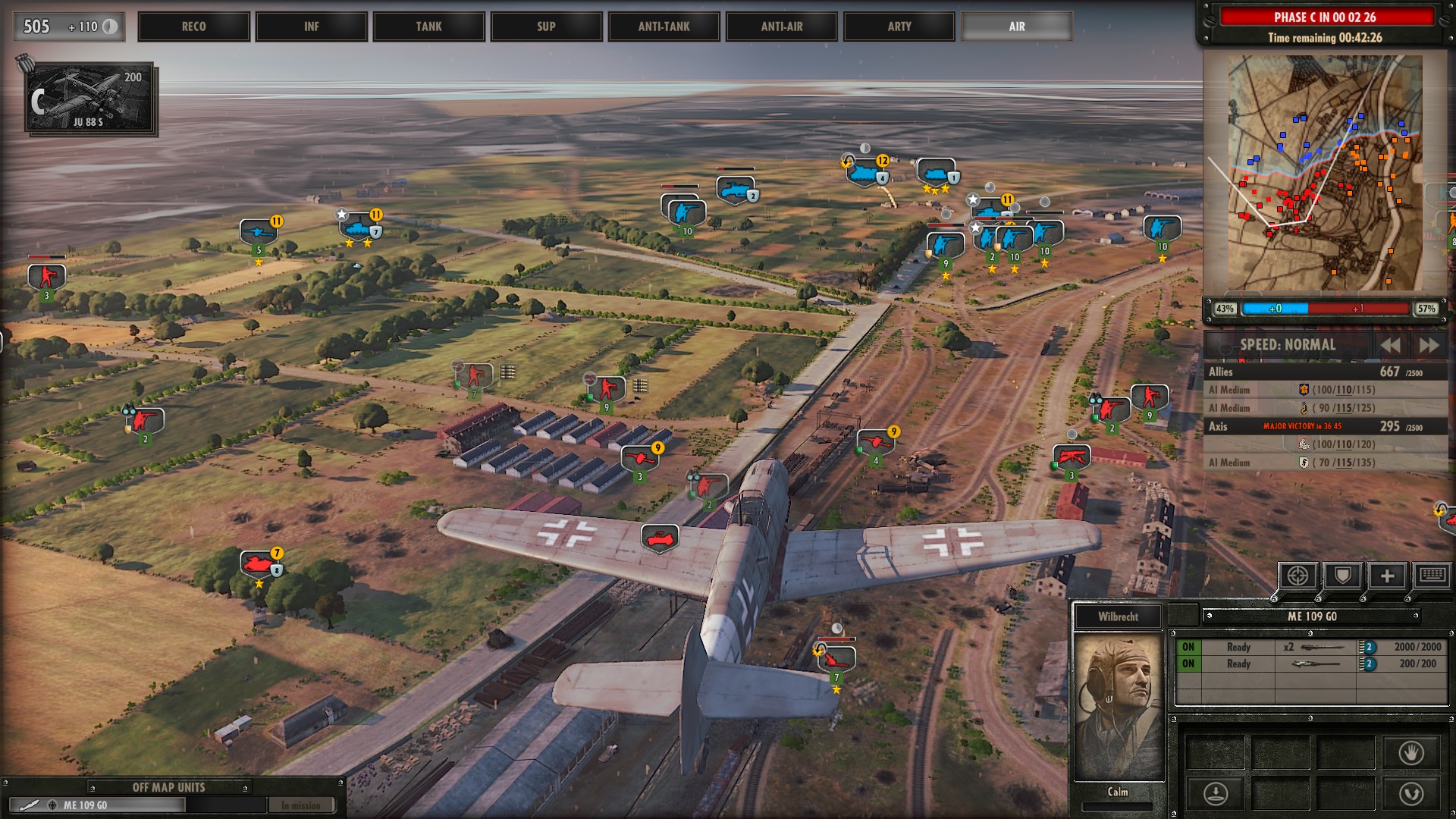
Steel Division: Normandy 44 - Most historical game about tactical combat in World War 2
A truly impressive feat to a military history nerd, Steel Division’s maps are built from actual aerial reconnaissance photographs taken during the Normandy invasion, down to the village layouts and placement of hedgerows. It also features realistic ranges and damage modeling for all of its vehicles and weapons, and even the relative speed and maneuverability of its air units. It limits heavier units to spawning later in a battle to simulate the simple fact that they would have taken longer to get there after first contact with the enemy.
Possibly most notable of all, though, is that it does an uncommonly good job stressing the importance of ground-based reconnaissance on the battlefields of World War 2, and the idea that engagements could be won or lost based on which side had better information.
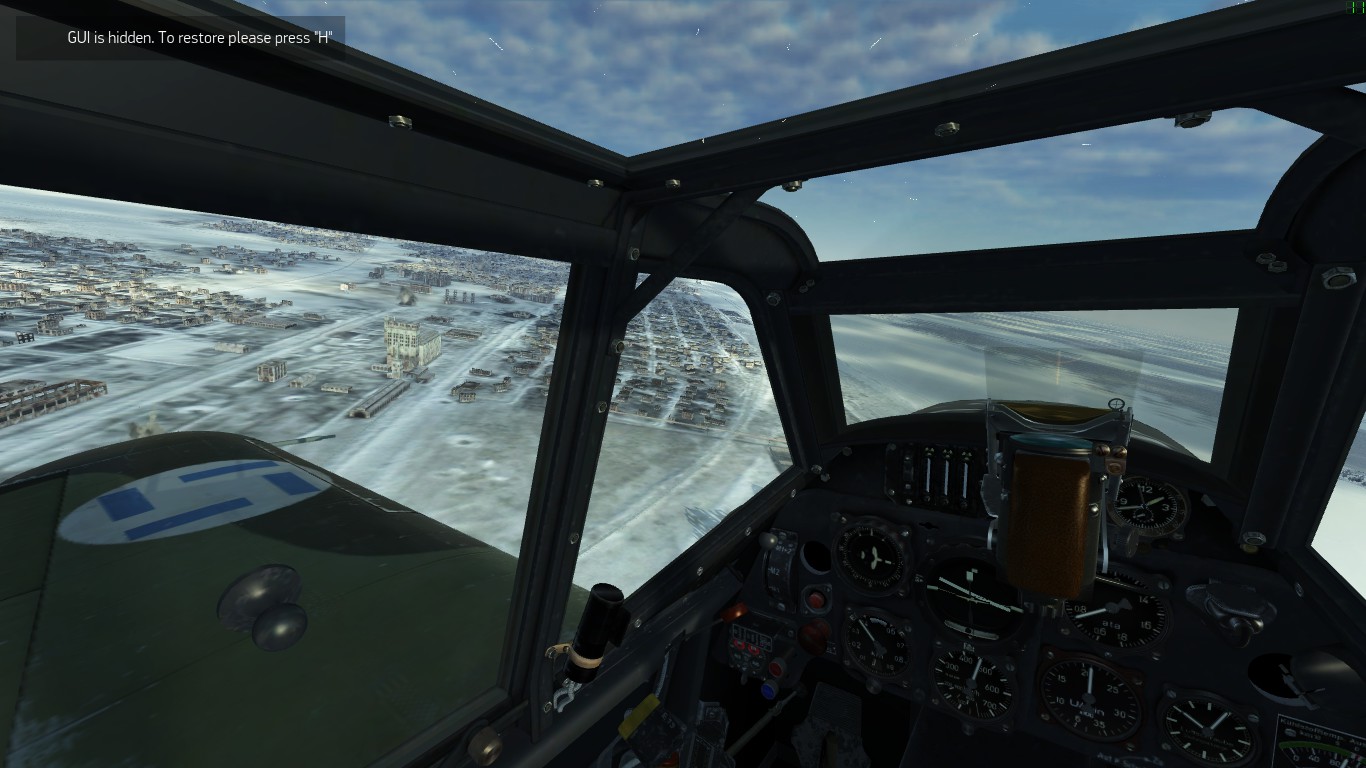
IL-2 Sturmovik series - Most historical combat flight simulator
I think most flight sim enthusiasts remember the first time they tried to do a backflip in IL-2 and saw the screen start to fade out, wondering if there was something wrong with their monitor. Not only are the controls and handling in this classic historically accurate, but it simulates the effects G-forces have on a fighter pilot maneuvering at high speeds. Force too much blood into your head and you’ll experience redout. Force too much into your feet and you’ll experience blackout. In addition, the titular IL-2 was depicted in meticulous, 3D detail and the combat missions presented plausible scenarios.
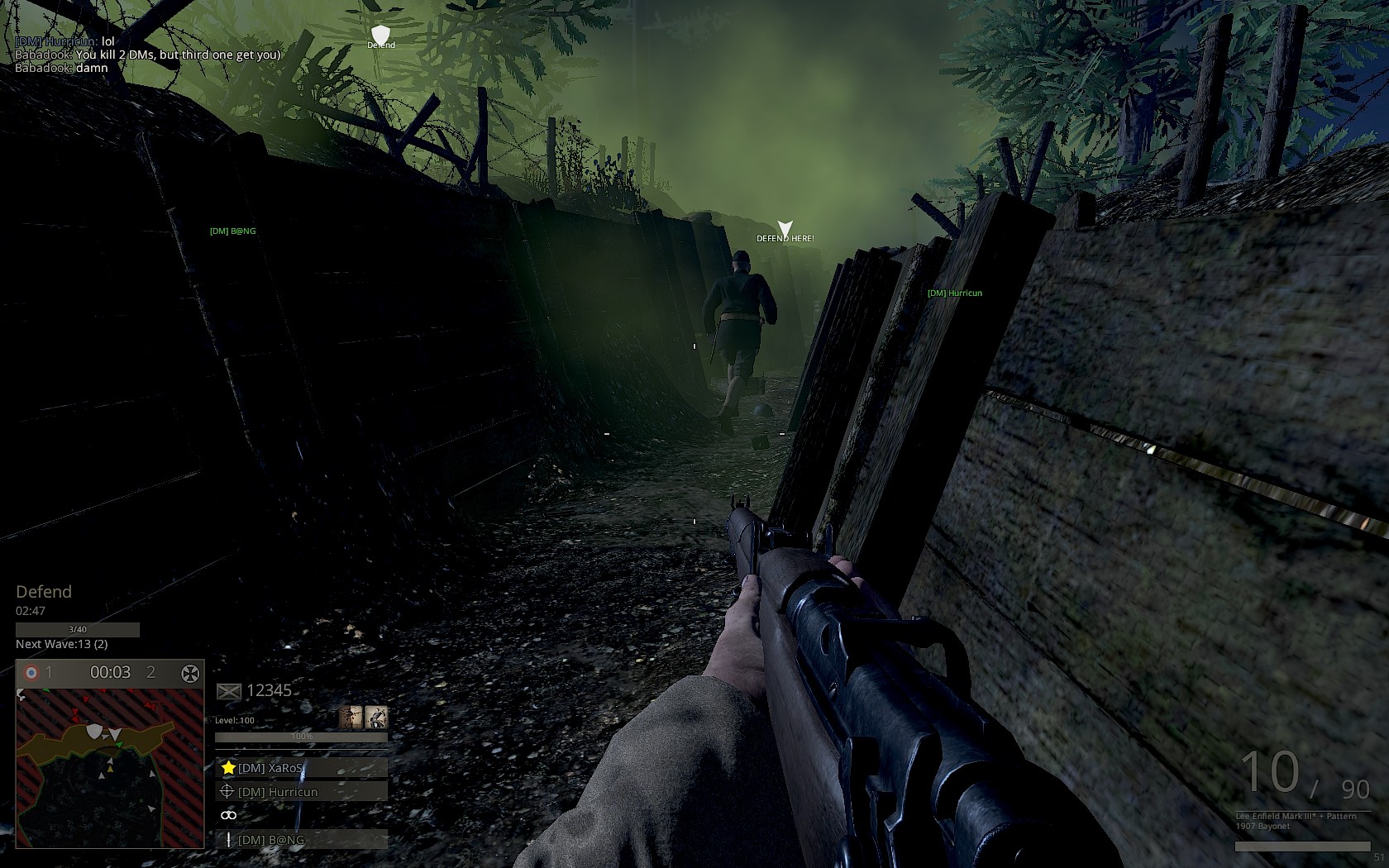
Verdun - Most historical World War I shooter
Move over, Battlefield 1. Verdun sets out to accurately depict trench warfare on the Western Front, and does a pretty good job of it for a multiplayer shooter. Its inaccuracies are forgivable sacrifices to scale, rather than in the details. it would be very difficult to get enough players on a single server to really depict some of the bigger battles of The Great War, and a lot more time was spent waiting around hoping not to get blown up by a shell than was spent taking aim and firing at the enemy—which isn’t really fun if you just have an hour a night to jump in the mud with your buds. Particularly impressive is the detail that goes into the uniforms, with items as small as buttons being painstakingly reproduced from period photographs.
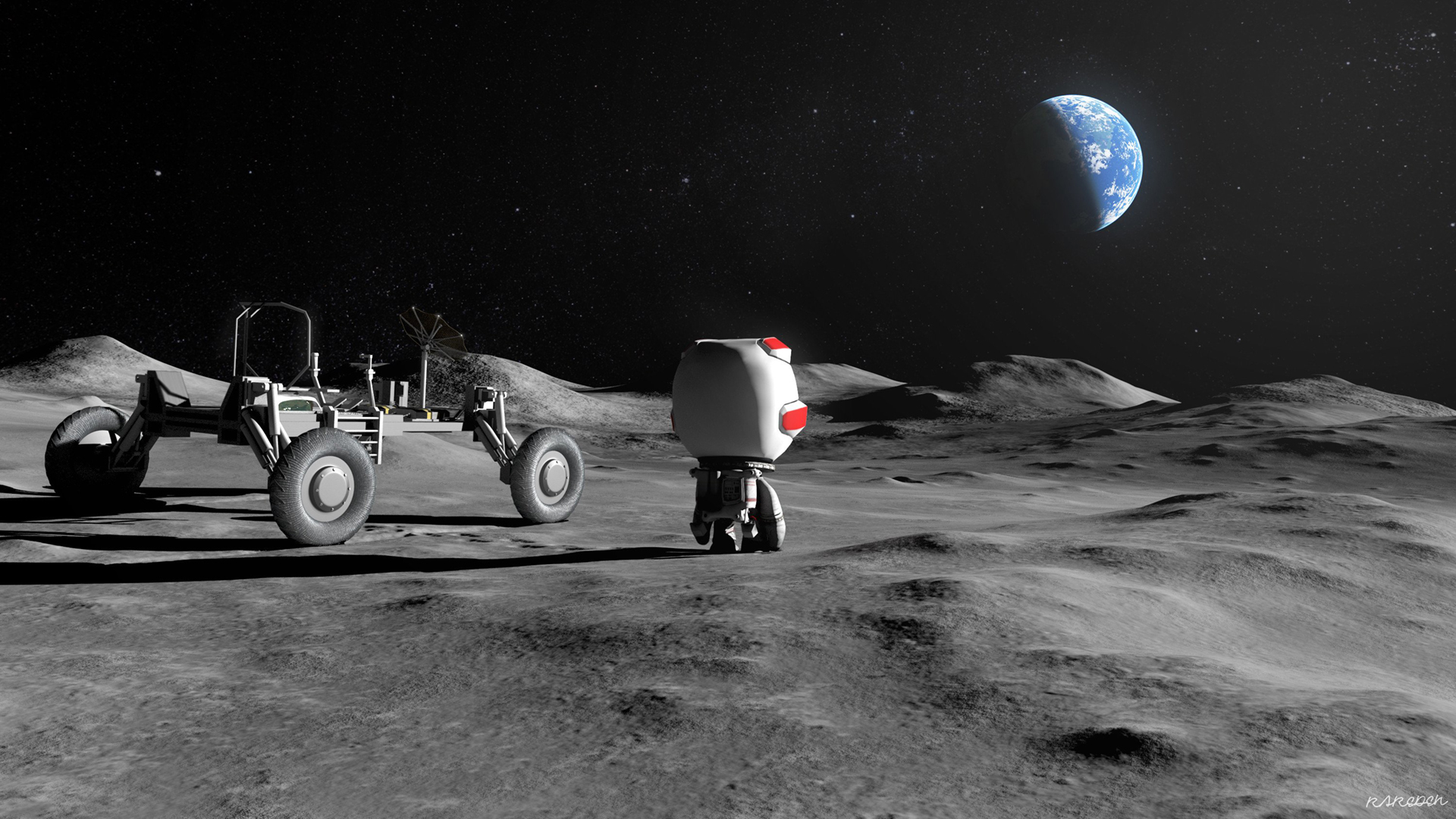
Kerbal Space Program - Most historical game about the space program
With its science-based modeling of orbital mechanics, propulsion, and aerodynamics, Kerbal Space Program is a great platform to teach about the history of spaceflight. In fact, the developers at Squad agree, and are working on an official Making History expansion. But if you don’t want to wait, the community has already beaten them to the punch. A number of mods, including the Historical Missions Pack, allow you to experience launches spanning from the first German V2 rocket tests all the way up to SpaceX and beyond.
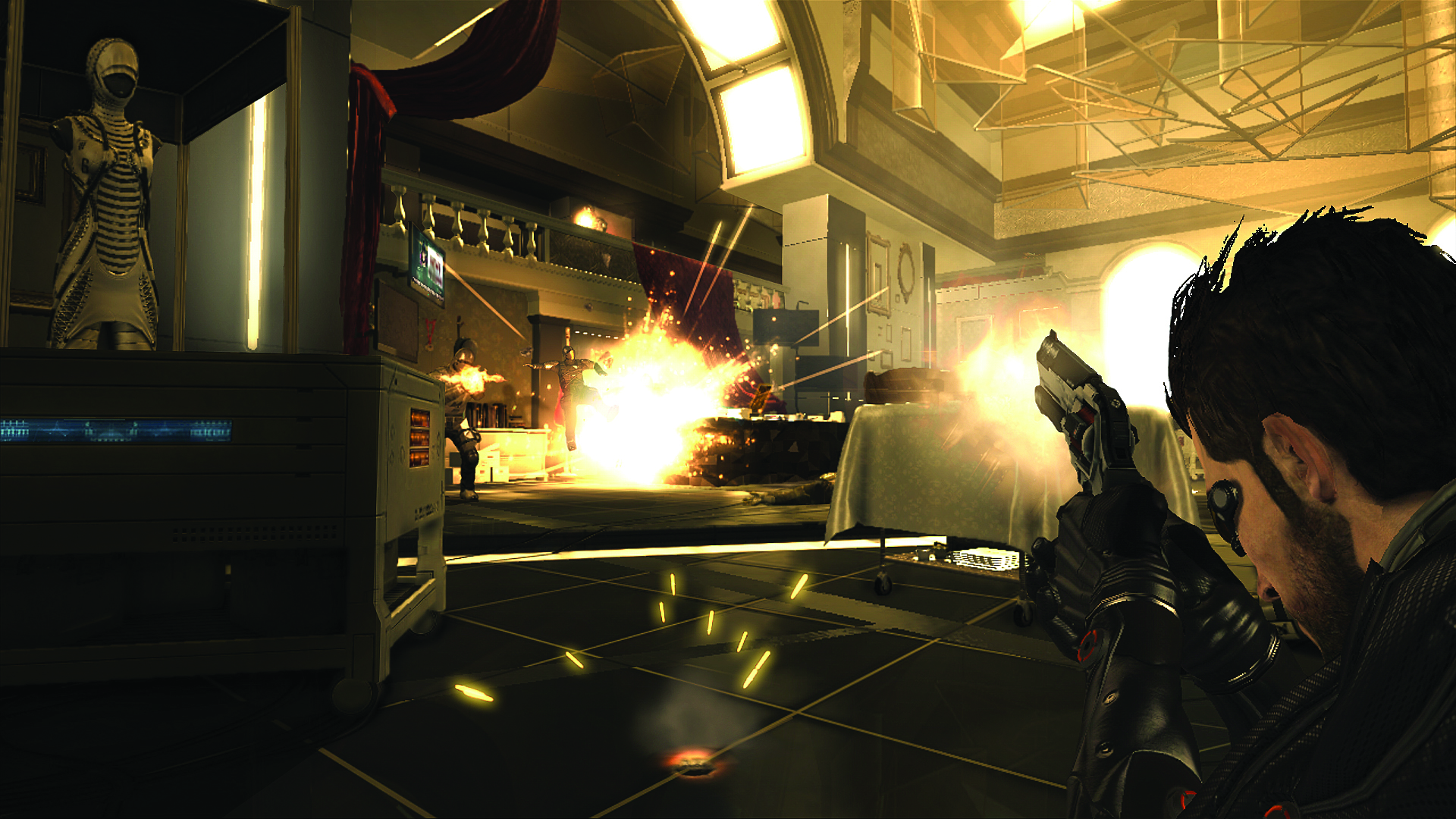
Deus Ex series - Most historical game about… the future?
So this one is mostly my own speculation based on observation of current trends, rather than anything backed up by in-depth scholarship. But I’ve always been impressed with how well Deus Ex depicts what I see as humanity’s likely next steps. Huge strides are being made in brain-computer interfaces, prosthetics, and artificial intelligence, while advancements in fields like spaceflight and laser swords are becoming increasingly hard to come by. Were I a betting man, I’d put my money on the assumption that we’ll see the world of Adam Jensen come to pass long before the world of Captain Picard.
Len Hafer is a freelancer and lifelong PC gamer with a specialty in strategy, RPGs, horror, and survival games. A chance encounter with Warcraft 2: Tides of Darkness changed her life forever. Today, her favorites include the grand strategy games from Paradox Interactive like Crusader Kings and Europa Universalis, and thought-provoking, story-rich RPGs like Persona 5 and Disco Elysium. She also loves history, hiking in the mountains of Colorado, and heavy metal music.

